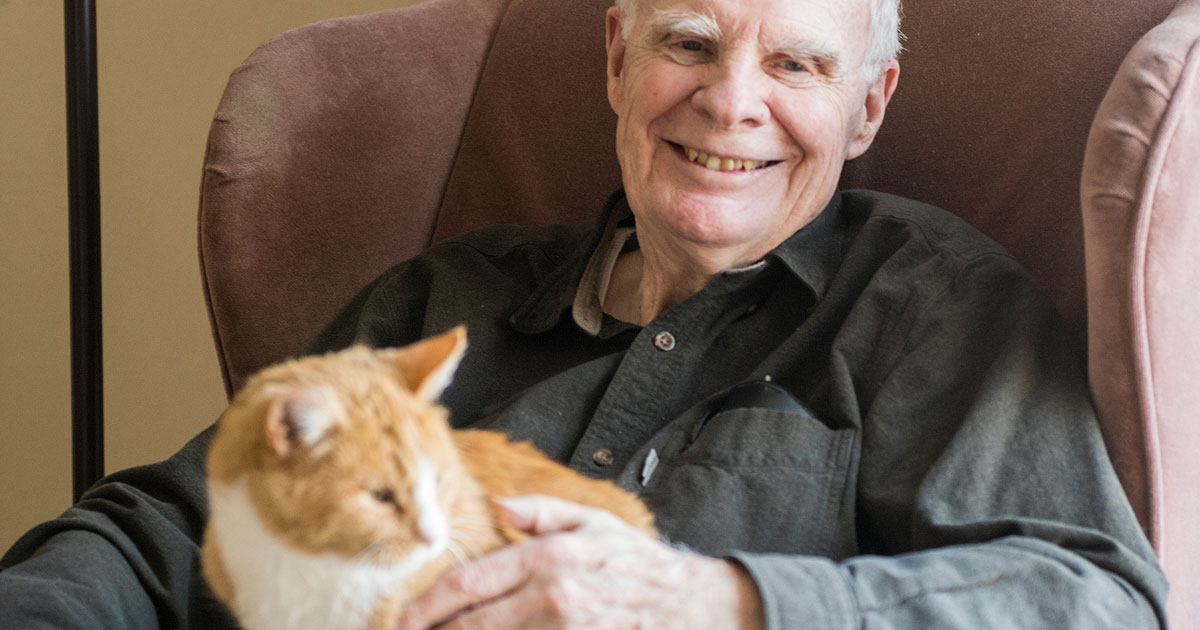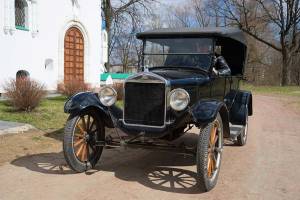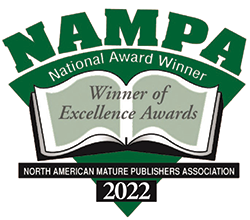Richard Wheeler was upset. He had recently heard that the American Prairie Reserve is going to issue permits to hunt the buffalo they have accumulated for the past several years.
“They are just getting the numbers up, and they’re going to let people kill them? And it’s just to raise money.” He shook his head. “I’ve been a great supporter of that organization, but I’m not sure I can support them any more.”
This sentiment may come as a surprise for some because he’s such a prolific novelist of Western literature. He’s written over 80 books—all of them Westerns—with the first published when he was nearly 50 years old.
He is not your stereotypical Western guy.
Wheeler doesn’t walk around posing as a cowboy. He wears khakis, a button-down white shirt, and a wonderfully worn pork-pie hat. Although he’s well over 6 feet tall, he doesn’t have an imposing presence. His manner is gentle, kind, warm.
“I grew up in Wisconsin,” he said. “But it was less the state of Wisconsin than its cultural heritage that shaped me. I grew up in a middle-class home, with everything from n to nurture me. My mother was a high school English teacher. My dad a patent lawyer. In my formative years my parents took me to New York, and these trips led to my first ambition—to become a playwright.”
An Unexpected Path
But his desire to become a writer took a very different path, leading him to a career in journalism. He worked for newspapers as a reporter and editor.
“I liked being an editor much better than being a reporter. We once had a story come in about a guy that had been killed in Vietnam, and my editor asked me to call the wife ‘for a reaction story.’ I waited until about 10 minutes before the end of the work day before I called. Thankfully, her mother answered, and I asked whether the wife was holding up all right. That was as close as I could get to getting a ‘reaction.’”
Talking to Wheeler in person, one can easily imagine he would not have fared well as a hard-bitten reporter. But it does make it difficult to understand how he became a writer of Westerns. Although he worked briefly on a dude ranch in Arizona, he’s never been a hunter or fisherman. He was, and still is, a self-described loner and homebody.
“Oh, here’s where we get into the confessionals,” he said. “I chose Westerns because it seemed like the easiest way to make a living.”
It Was About the Money
At a low point in his life, when he had lost his job as a book editor, Wheeler decided to write a Western, and as so often happens with writers who eventually get published, he had a stroke of good fortune. One day a man showed up at his door, telling him he had heard there was another writer in town.
Otis Carney was not only a published writer, but he had done a lot of work in Hollywood, and when Wheeler told him he was working on a book, Carney offered to give it a look. He came back with some hard criticism, and at that point, Wheeler took a turn that many others would not. Instead of getting discouraged or offended, he started all over again.
A Gift for Storytelling
As it turned out, Wheeler had a gift for storytelling.
His knack for writing came as a surprise even to him, but what was even more surprising was the acclaim. Wheeler’s third novel, Winter Grass (1983), was his first of 10 to be named a finalist for the Spur, the most prestigious award for Western writers. Six years later, he won his first of six such awards for Fool’s Coach (1989).
When asked the secret of a good book, Wheeler said, “I like stories that are driven by the characters. I start with a character or a cast of characters and let them tell me where the story is going.”
A Unique Approach
Although he is not the first writer to take this approach, Wheeler’s writing is unique in other ways.
For one, he often bases his fiction on real people, as he did with Masterson (1999)—another Spur Award winner — the story of Bat Masterson, the famous dentist turned lawman.
But perhaps what most distinguishes Wheeler’s novels from other Westerns is the lack of Western clichés.
His characters are nuanced, the stories complex and well-developed. And his dialog is incredible. The characters feel real.
Among this writer’s favorites are The Richest Hill on Earth (2011), his story of Butte and the Copper Kings, Cashbox (2004), a wonderful book that is part love story and part historical account of one of the many failed mines in Montana, and Eclipse (2002), about Lewis and Clark.
Avoiding the Clichés
It turns out that the avoidance of the usual clichés is no accident.
“I discovered that Western fiction is really Southern fiction,” said Wheeler when contemplating his approach to writing stories. “It sells well only in the South, especially Texas. It sells thinly down the Rockies and into the Southwest.”
He attributed this to protagonists who are typically angry ex-Confederates drifting west.
“Their goal is not to render justice or make the world a better place, but to prove their manhood,” he said.
According to Wheeler, this has little to do with character or idealism and everything to do with toughness and an itchy trigger finger.
He asserted gunfight Westerns are hollow, in spite of a few powerful stories such as High Noon, Shane, or The Man Who Shot Liberty Valance.
“Typical Western-shootout stories are dull and unsatisfying because character is absent. Violence is an end in itself,” he said. “I prefer stories that test the characters and their integrity, which is why I turned to historical and biographical fiction.”
The time it took to produce 80 novels in less than 40 years is hard to comprehend.
Wheeler is now 82 years old, and although he considers himself mostly retired, he recently started a new novel and is excited about it.
“It’s been awhile since I got any momentum on a new story, but this one just started coming out.”











